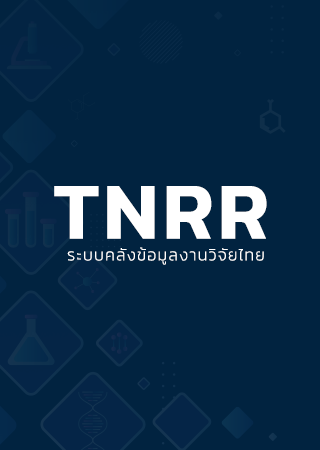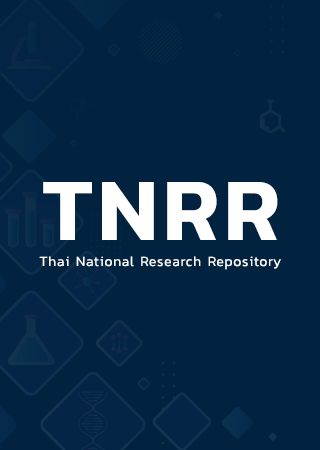Description
อ้อยเป็นพืชเศรษฐกิจที่สำคัญของไทย อุตสาหกรรมอ้อยและน้ำตาลทรายเติบโตอย่างต่อเนื่อง ซึ่งนโยบายมีบทบาทที่สำคัญ เนื่องจากมีนโยบายที่เกี่ยวข้องกับอ้อยหลายนโยบาย อาจพบปัญหาช่องว่างและความไม่สอดคล้องของนโยบาย โดยเฉพาะประเด็นด้านการเพิ่มผลผลิต ลดต้นทุน และรักษาเสถียรภาพราคาอ้อย ทำให้ประสิทธิผลของนโยบายลดลงได้ การวิจัยนี้ศึกษาช่องว่างและความสอดคล้องดังกล่าว โครงสร้างและสถาบันที่เกี่ยวข้อง และผลิตข้อเสนอแนะเชิงนโยบาย โดยใช้แนวทางวิจัยเชิงคุณภาพ วิธีการวิจัยประกอบด้วย การวิเคราะห์นโยบายแบบบนลงล่างเพื่อหาความสอดคล้องในระดับวัตถุประสงค์ และการวิเคราะห์นโยบายแบบล่างขึ้นบนเพื่อหาช่องว่างและความสอดคล้องในระดับการนำนโยบายไปปฏิบัติ โดยเก็บข้อมูลจากผู้มีส่วนเกี่ยวข้องได้แก่ เกษตรกร กลุ่มเกษตรกร สมาคมชาวไร่อ้อย โรงงานน้ำตาลทราย และบุคคลอื่นๆรวม 280 คน ในพื้นที่ปลูกอ้อยทั่วประเทศ ใช้วิธีการเก็บข้อมูลโดยสัมภาษณ์เชิงลึก อภิปรายกลุ่ม และจัดประชุมรวบรวมความคิดเห็น ผลการศึกษาพบว่ามีนโยบายระดับเหนือชาติที่เกี่ยวข้อง 3 นโยบาย นโยบายด้านอ้อยของไทยไม่สอดคล้องกับความตกลงภายใต้องค์การการค้าโลกในประเด็นของการอุดหนุน ส่วนกรอบอนุสัญญาสหประชาชาติว่าด้วยการเปลี่ยนแปลงสภาพภูมิอากาศ และเป้าหมายการพัฒนาที่ยั่งยืนนั้นยังเป็นช่องว่างของประเด็นนโยบาย สำหรับนโยบายในระดับชาติมี 23 นโยบาย ซึ่งส่วนใหญ่ระบุถึงโซนนิ่ง นโยบายที่ไม่สอดคล้องในระดับวัตถุประสงค์ได้แก่ พรบ. อ้อยและน้ำตาลทราย พ.ศ. 2527 ซึ่งไม่อนุญาตให้นำน้ำอ้อยไปผลิตเป็นผลิตภัณฑ์อื่นๆได้โดยตรง จึงไม่สอดคล้องกับประเด็นรักษาเสถียรภาพราคาอ้อย ประกาศกระทรวงอุตสาหกรรมขึ้นทะเบียนพาราควอตในบัญชีวัตถุอันตรายประเภทที่ 4 และมาตรการแก้ไขปัญหาอ้อยไฟไหม้ ไม่สอดคล้องกับประเด็นลดต้นทุน มาตรการพยุงราคาและประกันรายได้สินค้าเกษตร และยุทธศาสตร์มันสำปะหลังระยะ 20 ปี (2560-2579) เป็นการส่งเสริมพืชแข่งขันมีผลต่อการเพิ่มผลผลิต ลดต้นทุน และรักษาเสถียรภาพราคาอ้อย บริบทความเปราะบางที่มีผลกระทบต่อการดำรงชีพของเกษตรกรที่สำคัญได้แก่ ภัยแล้ง ราคาอ้อยตกต่ำ มาตรการทางการค้า และมาตรการภาครัฐ การมีช่องว่างหรือความไม่สอดคล้องของนโยบายยิ่งทำให้การรับรู้ผลกระทบดังกล่าวเพิ่มขึ้น การปฏิบัติและการส่งเสริมเพื่อเพิ่มผลผลิต ลดต้นทุน และรักษาเสถียรภาพราคาอ้อยที่สำคัญได้แก่ การตัดอ้อยสดและไว้ใบ ผลการวิเคราะห์ในระดับการนำนโยบายไปปฏิบัติพบว่า การสนับสนุนองค์ความรู้ทางวิชาการที่เกี่ยวข้องกับการผลิตอ้อย การส่งเสริมการผลิตอ้อยอย่างยั่งยืน การสนับสนุนความเป็นอยู่ของเกษตรกร การอนุญาตให้นำน้ำอ้อยไปผลิตเป็นผลิตภัณฑ์อื่นๆนอกจากน้ำตาลทรายได้โดยตรง การนำรายได้จากทุกผลิตภัณฑ์ที่ผลิตได้จากอ้อยและผลพลอยได้เข้าสู่การแบ่งปันผลประโยชน์ การส่งอุตสาหกรรมต่อเนื่องอย่างเป็นรูปธรรม และการประกาศของ สอน. ที่ล่าช้า เป็นช่องว่างของนโยบาย ส่วนนโยบายที่ไม่สอดคล้องได้แก่ มาตรการห้ามใช้พาราควอต มาตรการจับปรับรถบรรทุกอ้อยน้ำหนักเกิน มาตรการลดการตัดอ้อยไฟไหม้ และมาตรการยกเลิกเก็บเงินจากการจำหน่ายน้ำตาลทรายในประเทศ 5 บาท/กิโลกรัม จากการวิเคราะห์ช่องว่างและความสอดคล้องรวมทั้งความต้องการนโยบาย ผู้วิจัยเสนอร่างข้อเสนอแนะเชิงนโยบายเพื่อให้ผู้มีส่วนเกี่ยวข้องพิจารณา โดยจัดประชุมรวบรวมความคิดเห็นทั่วภูมิภาคต่างๆ ซึ่งผู้มีส่วนเกี่ยวข้องทุกกลุ่มเห็นชอบต่อร่างดังกล่าว แต่เสนอแนะให้เพิ่มเติมรายละเอียดของบางประเด็น ข้อเสนอแนะเชิงนโยบายที่ปรับปรุงแก้ไขและผ่านการพิจารณาและให้ความเห็นจากผู้เชี่ยวชาญ ประกอบด้วยชุดนโยบาย 3 ชุด ได้แก่ 1) ชุดนโยบายส่งเสริมการปฏิบัติที่ดี การพัฒนาองค์ความรู้ และการถ่ายทอดองค์ความรู้ เพื่อสนับสนุนการผลิตอ้อยสดสะอาดและใช้ประโยชน์จากใบอ้อย (12 ประเด็น) 2) ชุดนโยบายขับเคลื่อนเศรษฐกิจชีวภาพโดยอุตสาหกรรมต่อเนื่องที่ใช้อ้อยเป็นวัตถุดิบ (5 ประเด็น) และ 3) ชุดนโยบายสร้างเสถียรภาพของกองทุนอ้อยและน้ำตาลทราย (2 ประเด็น)<br><br>Sugarcane is an important economic crop of Thailand. Public policies have played an important role on growth of the sugarcane and sugar industry. However, since there are a number of policies associated with sugarcane, policy gaps and inconsistency may occur. The research project was conducted to determine gaps and inconsistency of policies addressing yield improvement, cost reduction and maintaining stability of sugarcane price. Applying a qualitative research approach, objective inconsistency was identified through the top-down policy analysis. In complement with this analysis, gaps and incoherence of implementation practices were identified by the bottom-up counterpart. In-depth interviews, focus groups and workshops with a total of 280 participants were performed across the country where sugarcane was extensively grown. Results indicated that there were 3 important international policies that Thailand was under an obligation. However, the Cane and Sugar Act B.E. 2527 violated the Agreement on Agriculture on domestic and import subsidies. The United Nations Framework Convention on Climate Change and the Sustainable Development Goals were not mainstreamed into Thai policies dealing with sugarcane. There were 23 national policies/instruments directly or indirectly involving sugarcane. A majority of them addressed zoning as an integral objective in improving productivity. Incoherent policies were the Cane and Sugar Act B.E. 2527, Notification of the Ministry of Industry: List of Hazardous Substances (No.6) B.E. 2563 (banning of paraquat), Measures to reduce burnt-harvested sugarcane, Agricultural price support measures (cassava) and the Strategic Roadmap for Cassava. These policies directly resulted in higher production cost or indirectly decreased sugarcane productivity. Field data revealed that droughts, price slumps, trade agreements and government banning measures were salient vulnerability contexts. Farmer livelihoods were adversely affected by these circumstances. Moreover, policy gaps and incoherence exacerbated the poor livelihoods. Key practices and extension to boost yields, save costs and maintain satisfied income from sugarcane production were green harvesting and trash blanketing. The practices were practical and suitable for adaptation to droughts and price decline. Stakeholders identified 7 gaps and found incoherence in 4 policies at the level of implementation. A draft of policy recommendations was obtained from the analyses and stakeholders’ requirements. Meetings were held to review and revise the draft. All groups of stakeholders agreed with the recommendations. The revised version of policy recommendations was reviewed by a panel of policy experts. The final recommendations were consisted of 3 policy packages, 1) the package on promoting good practices, knowledge development and knowledge transfer in green and clean sugarcane production and trash utilization (12 issues) 2) the package on driving bio-economy through downstream industries utilizing sugarcane (5 issues) and 3) the package on reinforcing stability of the Cane and Sugar Fund (2 issues).
Date of Publication :
02/2023
Publisher :
สำนักงานการวิจัยแห่งชาติ (วช.)
Category :
รายงานการวิจัย
Total page :
77012 pages
People Who Read This Also Read


